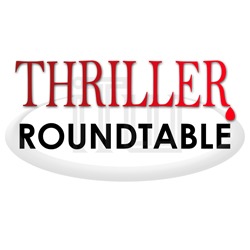

December 13-19: “What’s one myth about being an author you’d like to debunk?”
Writers regularly go on lavish book tours. Writers work all day in their pajamas. Writers struggle with writers block. Writers are depressed/suicidal/loners/alcoholics. Writers drink too much coffee. True, or not true? Susanna Kearsley, Julie Korzenko, C.E. Lawrence, Allan Leverone, Bonnie Hearn Hill, and Jeremy Robinson break down these and other writerly stereotypes.
After studying politics and international development at university, Susanna Kearsley sidestepped into museum work and at the age of twenty-two became a curator. In that same year, her sister dared her to stop writing first chapters and produce a book. By the end of that summer she had finished her first novel. She left the museum to waitress and write. Her second novel, Mariana, won the Transworld Publishers’ Catherine Cookson Fiction Prize competition. Seventeen years later, Susanna is still telling stories.
Born in England, raised in New England and subsequently settling in the South, Julie Korzenko’s background has strongly influenced her eclectic taste in literature, art and life experiences. A passionate advocate for nature and wildlife, she began college as a zoology major but ultimately graduated with a business degree in paralegal studies. Her career has run the gambit from law to network administration to marketing and back to law. Her first novel, DEVIL’S GOLD, was published by Medallion Press in 2009.
C.E. Lawrence is s the byline of a New York-based suspense writer, performer, composer and prize-winning playwright whose previous books have been praised as “lively. . .” (Publishers Weekly); “constantly absorbing. . .” (starred Kirkus Review); and “superbly crafted prose” (Boston Herald). Silent Screams and Silent Victim are the first two books in her Lee Campbell thriller series. Silent Kills comes out later this year. Her other work is published under the name of Carole Bugge.
Allan Leverone attended the University of Notre Dame with the intention of majoring in newspaper journalism before changing direction after his freshman year and majoring in Business Administration, a degree he received in 1981 and to this day hs never put to use. After graduation, Allan was hired by the Federal Aviation Administration and began training as an air traffic controller, a job he has held ever since, working in Providence, Rhode Island, Bangor, Maine, and, for the last twenty years controlling traffic at Boston’s Logan International Airport. Final Vector is Allan’s first novel, and will be published by Medallion Press in February, 2011. In the meantime, he continues working on follow-up projects, including a horror novel based on a fictional three-hundred-year-old Native American curse and a conventional thriller featuring an ordinary man who breaks up a kidnapping and in doing so thrusts his own family directly into the maniac’s sights.
A former newspaper editor, Bonnie Hearn Hill is the author of six thrillers from MIRA Books, and most recently, the young adult Star Crossed series from Perseus/Running Press. She has mentored and worked with writers such as Dr. Mark Fesen (Surviving The Cancer System), Hazel Dixon-Cooper (Cosmopolitan magazine columnist and author of the Rotten Day astrology series), as well as film stars, media personalities, those involved in high-profile true crime cases, and on occasion, just interesting people with engaging causes and stories. She was co-founder of the Yosemite Writers Conference, leads a writing workshop in Fresno, California, and teaches online for Authorlink exclusively.
Jeremy Robinson is the author of nine novels including PULSE, INSTINCT and THRESHOLD, the first three books in his exciting Jack Sigler series. His novels have been translated into eight languages. He is also the director of New Hampshire AuthorFest, a non-profit organization promoting literacy. He lives in New Hampshire with his wife and three children.
- LAST GIRL MISSING with K.L. Murphy - July 25, 2024
- CHILD OF DUST with Yigal Zur - July 25, 2024
- THE RAVENWOOD CONSPIRACY with Michael Siverling - July 19, 2024

